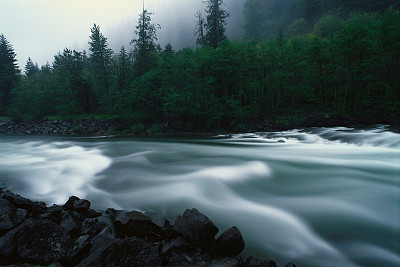 by American Geophysical Union
Credit: Pixabay/CC0 Public Domain
Preserved penguin poop may be the key to connecting past Antarctic Ocean conditions and penguin populations, shedding light on how the birds and the region's ecosystem might fare as the climate changes
by American Geophysical Union
Credit: Pixabay/CC0 Public Domain
Preserved penguin poop may be the key to connecting past Antarctic Ocean conditions and penguin populations, shedding light on how the birds and the region's ecosystem might fare as the climate changesA new study analyzed the chemistry of layers of penguin guano that built up from 6,000 years of Adélie penguins nesting in the same Antarctic site
The researchers aimed to tie changes in the poo's chemistry to shifts in ocean circulation that could have controlled the local food web
The work was published in Geophysical Research Letters, which publishes high-impact, short-format reports with immediate implications spanning all Earth and space sciences
Antarctica can be a tough place to survive, even for hardy little Adélie penguins
It's frigid and dark for half the year, and prey—mainly krill and fish—can be hard to come by in the icy Ross Sea
Their food supply changes seasonally with the sunlight, but it also waxes and wanes over thousands of years as ocean currents slowly shift, sea ice forms and breaks up, and water warms and cools
The new research found several peaks of cadmium, a deep-sea nutrient, in the penguin poo that corresponded to greater densities of penguin remains buried in the nesting area
This relationship suggests that deep, nutrient-laden ocean water was redirected to the surface several times in the past 6,000 years, allowing ecosystems at the surface to thrive
The method is a novel approach to reconstructing past ocean circulation
The researchers posited that penguin population size was linked to changes in Circumpolar Deep Water, a warm current that flows in the deep ocean roughly clockwise around Antarctica and upwells through the Ross Sea
In the past, circulation changes allowed more of the deep current to reach the surface, delivering nutrients like cadmium that are essential to sustain the base of the food web
That cadmium made its way through krill and fish into, and out of, the penguins
In addition to providing an explanation for penguin populations, the poop record gives the researchers valuable insight into how oceans behaved in the past—and therefore, how they may work in the near future
"Circumpolar Deep Water is of great concern to both climatologists and oceanographers because it drives the rapid melting of the West Antarctic ice shelf and outgassing of carbon dioxide to the atmosphere and determines the spatial distribution of biomass in the Southern Ocean," said Zhouqing Xie, an environmental geochemist at the University of Science and Technology of China who co-authored the study
"But the historical reconstructed record of Circumpolar Deep Water is quite sparse
We only find clues from ocean sediment cores and can indirectly infer what the current was doing through sea-surface temperatures and sea ice
" "It does appear to be an indicator of how water masses are changing in the Ross Sea," said Robert McKay, an Antarctic researcher at Victoria University in Wellington who was not involved in the study
"This provides another toolset for our arsenal of understanding the impacts of changing cryosphere on biological systems
" A warming Antarctica Understanding how Antarctica's circulation patterns have changed in the past is important for contextualizing changes in the biosphere and as well as predicting how modern oceans may respond to climate change
Records of past circulation are often based on marine sediments which, while useful for studying the water, do little to reflect what's happening with life on land
The penguin guano is doubly useful, in providing an additional constraint on ocean circulation and a more direct link between the oceans and land animals
"One of the big issues we have when we try to make this work relevant to biological systems is scaling up on the food web, which is where this paper is interesting
Because the biosphere is a much more complex system [than the oceans], it's more chaotic in many ways and harder to model
Getting that link between plankton and megafauna is quite tricky, so this is a nice example of how you can do that," said McKay
The study found a peak in cadmium and penguin remains around 1,000 years ago, as the warm Circumpolar Deep Water welled up and melted sea ice
More food could have been available as melting ice cleared foraging and breeding grounds, letting penguin populations climb
Although some warming has likely boosted penguin populations in the past, rapid warming in Antarctica today may be too much for the birds to handle
"Current warming in West Antarctica is so fast and intense that may cause problems in other aspects
In particular, enhanced Circumpolar Deep Water upwelling in West Antarctica has caused rapid glacial melting, extreme warming of the ocean surface and possibly a southward contraction in krill distribution
This could lead to the relocating of penguin habitat and, for emperor penguins that breed on ice, the possibility of complete disappearance in some areas," said Liguang Sun, a co-author on the study at the University of Science and Technology of China
来源:由phyica.com整理转载自PH,转载请保留出处和链接!





















